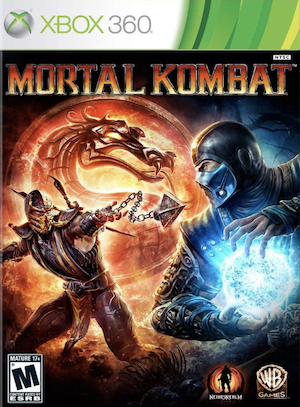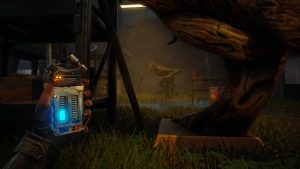
P.T. has, to say the very least, had a massively outsized influence for what is essentially a brief demo of a game that was never allowed to exist. On paper, a 2-hour long experience that is as mechanically light and streamlined as P.T. is shouldn’t be the kind of thing that embeds itself into people’s memories for literally years to come- and yet, that is exactly what P.T. has done. Those who have played it will tell you – and tell you with some vigor – that it is legitimately one of the greatest horror games ever made- and honestly, it’s hard not to be in complete and utter agreement with that notion.
Coming from the mind of Hideo Kojima and his team (which, at the time, was still operating under the oversight of parent company Konami), P.T. was not a game that was content to do things by the numbers. In the years since its launch, we’ve seen an absolute deluge of imitators and games that have lifted at least a few elements from the seminal demo, but back when it first came out, P.T. was singular. It was entirely unique, delivering a kind of experience that most of us hadn’t even conjure up in our wildest fantasies. Until it launched, we obviously couldn’t miss what we had never had, but once it was out and we had played it, it was impossible to go back to a horror genre in gaming as it was pre-P.T.
And what exactly was it that made P.T. as good and unique as it was? That’s a question that we (and countless others) have been having endless discussions over to this very day, which means there’s no shortage of things to love about P.T., but if you were to boil it down to its barest, you’d probably recognize the genius in its simplicity as perhaps the biggest factor contributing to its enormous (and well-earned) success.
Because really, P.T. is an extremely simple game. As players you only ever have access to a couple of verbs throughout the length of the experience- you can walk around, and you can zoom in on things. From a gameplay perspective, those are the only two things that you ever do, and though that sort of gameplay loop would threaten to become monotonous sooner or later in similar games – of which there’s no shortage – P.T. doesn’t feel like it’s being held back by that simplicity so much as it’s being bolstered by it.
A lot of that is, of course, down to how effective it is as a horror experience, which in turn is thanks to how unpredictable it is from beginning to end (especially on a first playthrough). P.T. builds familiarity through repetition, having players go through a simple hallway inside a seemingly regular suburban home again and again and again, and then uses that familiar to great effect by playing with your expectations in each loop. Each time, you hope to experience nothing but the mundanity that the ordinariness of your surroundings would ordinarily hint at, but each time you turn around that corner in a loop, you experience something new- something horrifically unsettling in ways you couldn’t have imagined.
Whether it’s the muffled cries of a baby coming from inside a fridge suspended mid-air while blood pours down its sides or a woman being brutally stabbed and killed in a bathroom while unsettling radio reports blare on in the background, whether it’s deeply distressing bits and pieces of the game’s tragic story that you discover and put together as you play more or, of course, the petrifying encounters you have with the chilling apparition known as Lisa. And yes, we absolutely weren’t going to get through this without talking about Lisa, who is perhaps the single most terrifying enemy we’ve had the fortune (or misfortune, as the case may be) of crossing paths with in a game in years.
The idea of a pale, ghostly lady staring at you from darkened distance is a chilling one in and of itself- it’s a horror trope that has endured through the ages, and it’s one that P.T. uses to great effect. But the more you experience this masterpiece of a game, the more you realize that Lisa is not just an excellent version of an established horror trope, but a benchmark that horror games still haven’t managed to rise to, much less surpass. Whether you’re frozen in place as you behold her ghostly visage as she stands on the landing above you, or catching glimpses of her in your peripheral vision from the corner of your eye, each time you encounter Lisa – or think you encounter Lisa – chances are your heart is going to leap right into your throat.
And yes, we’re almost legally obligated to mention that later on in the game, Lisa is tethered directly behind the player at all times, which means she’s always right there, literally just breathing down your neck. The very thought is terrifying. In fact, it wouldn’t be an exaggeration to call P.T. one of the scariest games ever made. From a design and mechanics perspective, it might not have the scale or complexity that some of the genre’s best games can tout, but in terms of pure scares – not just in the quantity of scares, but also in their pure intensity – you’ll struggle to find many games that have P.T. beat.
A healthy collection of incredibly well-realized scares, genuinely unsettling storytelling, and cryptic and engaging puzzles are able to come together as spectacularly as they do in P.T. because of the game’s emphasis on simplicity and minimalism. You could argue that if not for the laser-sharp focus that the game is able to have as a result of that approach, it wouldn’t have been able to do justice to some of the things that are most crucial to the experience.
Returning to the thesis that we started this discussion with, then, it’s not surprising that P.T. has had the influence that it has, in spite of the fact that it’s essentially just a playable teaser (that’s literally its name, after all), given just how good it is at what it does. In the decade since its release, P.T. has spawned an entire genre of indie horror titles, first-person perspectives that blur the lines between walking sim and psychological horror, while even some of the biggest AAA horror games out there – including something as massive as even Resident Evil 7 – have taken more than a few cues from the revolutionary playable teaser.
The fact that we never got to see the full Silent Hill game that P.T. was supposed to lead into is a crying shame, as is the fact that the demo got nuked from existence by Konami, thanks to the circumstances surrounding Kojima’s departure and Silent Hills’ cancellation. That is, of course, a whole another discussion (one that has been had an infinite number of times, including by ourselves), but if nothing else, P.T. will always live long in memory as one of the most astounding, impactful, and memorable horror games of all time. The fact that it achieved everything that it did in spite of being a free demo should tell you everything you need to know about just how unbelievably good it was.
Note: The views expressed in this article are those of the author and do not necessarily represent the views of, and should not be attributed to, GamingBolt as an organization.


















Share Your Thoughts Below (Always follow our comments policy!)